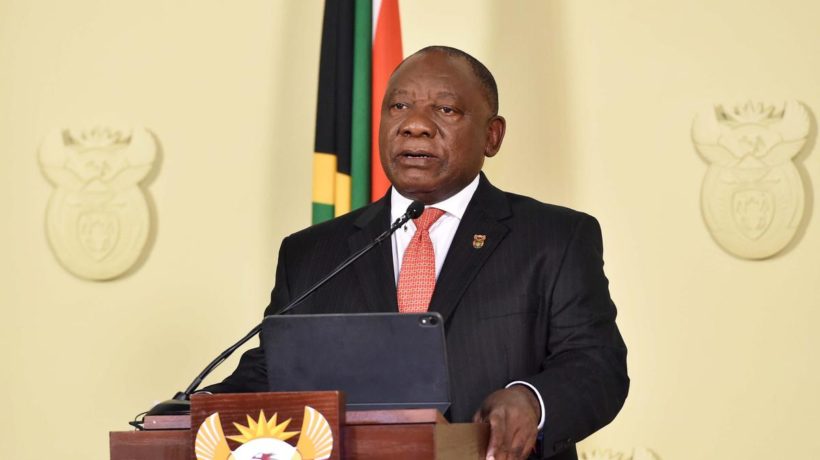South Africa president, Cyril Ramaphosa, announced yesterday that a countrywide lockdown will come into effect on Thursday 26 March. The 21-day lockdown is the latest government intervention to try and control the spread of the coronavirus. It will last from midnight on Thursday, 26 March until 16 April, the president announced last night.
According to Ramaphosa, this lockdown is mandatory and has to be implemented to ensure that the spread of the Covid-19 virus is reduced to flatten the curve.
The Department of Health announced earlier on Monday that confirmed coronavirus cases in South Africa were now at 402, a massive jump from 128 the day before.
The Northern Cape recorded its first case while Gauteng still leads the pack in confirmed cases, with 207 cases in the country’s smallest province.
There has been mounting pressure on the government to lock down the country as fears grew of the possible increase in cases.
But there was also concern after some South Africans were seen to be carrying on life as usual, attending parties and other social gatherings in their numbers.
On Monday while addressing the nation, Ramaphosa said: “This is a decisive measure to save millions of South Africans from infection and save the lives of hundreds of thousands of people. While this measure will have a considerable impact on people’s livelihoods, on the life of our society and on our economy, the human cost of delaying this action would be far, far greater.”
Ramaphosa said the only persons that were exempted from the lockdown were SAPS personnel, the SANDF, healthcare workers, emergency personnel, security services, military medical personnel and soldiers.
He said other people who were exempt included those who were in the production, distribution of food and basic goods, banking services, water service, power utility service and laboratory services.
Banks, petrol service stations, pharmacies, laboratories, supermarkets and healthcare providers are allowed to stay open.
Ramaphosa also said people would only be allowed to leave their homes to buy food, seek medical help or under other extreme circumstances.
Soldiers will be deployed on the streets to support the police, and international travellers who arrived in South Africa after March 9 from “high-risk” countries will be confined to their hotels until they have completed a 14-day period of quarantine.
“Everyone in South Africa should adhere to the regulations that have been put in place. We need to escalate our response, The next few days are crucial and the number could rise to hundreds and thousands,” Ramaphosa said.
The lockdown follows government regulations that limited public gatherings to 100, limited travel from high risk countries and limited the sale of alcohol.







